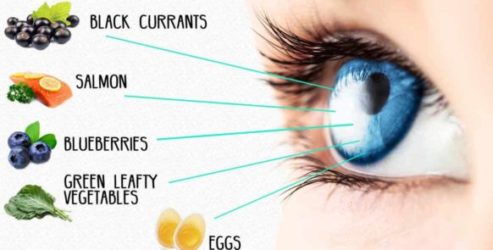What Is the Relationship Between Eye Health and Nutrition

The relationship between eye health and nutrition is a subject of significant scientific interest. Proper nutrition plays a crucial role in maintaining optimal eye function and preventing eye diseases.
This article aims to explore the importance of various nutrients for eye health and discuss how diet can impact vision. Additionally, it will highlight specific foods that promote good vision and offer dietary tips for preventing eye diseases.
The role of antioxidants in supporting eye health and the influence of lifestyle factors will also be examined.
Key Takeaways
- Vitamins A, C, and E, along with other antioxidants, are essential for maintaining healthy eyes and preventing conditions like macular degeneration, cataracts, and night blindness.
- Incorporating a balanced diet rich in fruits, vegetables, whole grains, fatty fish, and leafy greens supports and maintains optimal eye health.
- Antioxidants like vitamins C and E, beta-carotene, lutein, and zeaxanthin protect the eyes from oxidative stress, filter harmful blue light, and reduce the risk of age-related eye diseases.
- Nutritional deficiencies can negatively impact eye health, and lifestyle factors like protecting the eyes from UV radiation, regular exercise, and eye exercises contribute to maintaining optimal eye function.
The Importance of Nutrients for Eye Health
The importance of nutrients for eye health is well-established in scientific literature. Vitamins, in particular, have been found to provide numerous benefits for maintaining healthy eyes and preventing conditions such as macular degeneration.
Vitamin A is essential for maintaining good vision and preventing night blindness, while vitamin C has been shown to reduce the risk of cataracts. Vitamin E, on the other hand, is believed to protect the eyes from oxidative damage.
Additionally, vitamins C and E, along with other antioxidants, have been linked to a reduced risk of macular degeneration, which is a leading cause of vision loss in older adults.
These findings highlight the significance of including sufficient amounts of vitamins in one’s diet to support eye health and prevent degenerative eye conditions.
Key Nutrients for Maintaining Healthy Eyes
Key nutrients that are essential for maintaining healthy eyes include vitamins, minerals, and antioxidants. These nutrients play a crucial role in supporting eye function and protecting against various eye conditions.
Here are four key nutrients that are beneficial for eye health:
- Vitamin A: This vitamin is essential for maintaining good vision and preventing night blindness. It can be found in foods like carrots, sweet potatoes, and spinach.
- Omega-3 fatty acids: These healthy fats help reduce the risk of age-related macular degeneration (AMD) and dry eyes. Good sources of omega-3s include fatty fish like salmon, chia seeds, and flaxseeds.
- Lutein and zeaxanthin: These antioxidants are found in high concentrations in the macula of the eye and help protect against AMD. Foods rich in these nutrients include leafy greens, eggs, and corn.
- Vitamin C: This vitamin is important for maintaining the health of blood vessels in the eyes. Citrus fruits, strawberries, and bell peppers are excellent sources of vitamin C.
Incorporating these nutrients into your diet through eye healthy recipes and considering supplements for vision improvement can help support and maintain healthy eyes.
How Diet Affects Eye Health
Various dietary factors have been shown to have a significant impact on the overall well-being of the eyes. The role of vitamins and other nutrients in maintaining good eye health has been extensively studied. Adequate consumption of certain vitamins, such as vitamin A, C, and E, as well as minerals like zinc and selenium, has been associated with a lower risk of eye diseases, such as age-related macular degeneration and cataracts.
These nutrients have antioxidant properties that help protect the eyes from oxidative stress and damage caused by free radicals. Additionally, a balanced diet that includes a variety of fruits, vegetables, whole grains, and fish can contribute to better vision and overall eye health.
Conversely, a poor diet lacking in essential nutrients can have a negative impact on vision and increase the risk of eye problems. Therefore, it is crucial to maintain a healthy diet to support optimal eye health.
Foods That Promote Good Vision
Numerous studies have found that incorporating certain foods into one’s diet can positively influence visual acuity and support overall eye function. When it comes to promoting good vision, there are specific foods that have been shown to be beneficial.
These include:
- Leafy greens: Foods like spinach and kale are rich in lutein and zeaxanthin, which are antioxidants that may reduce the risk of macular degeneration.
- Fatty fish: Fish like salmon, mackerel, and sardines are high in omega-3 fatty acids, which can help prevent dry eyes and support eye health.
- Citrus fruits: Oranges, lemons, and grapefruits are packed with vitamin C, which is important for maintaining the health of blood vessels in the eyes.
- Carrots: Carrots are well-known for their high vitamin A content, which is essential for good vision and may help prevent night blindness.
Dietary Tips for Preventing Eye Diseases
To prevent eye diseases, incorporating a diet rich in foods like leafy greens, fatty fish, citrus fruits, and carrots has been shown to be beneficial in supporting overall eye health. Maintaining a balanced diet is crucial for maintaining good eye health, especially as individuals age.
Age-related eye diseases such as cataracts and macular degeneration are common among older adults. These conditions can significantly impact vision and quality of life. Research suggests that certain nutrients found in a balanced diet can help prevent or slow down the progression of these diseases.
Antioxidants like vitamins C and E, zinc, and omega-3 fatty acids have been linked to a reduced risk of age-related eye diseases. Therefore, consuming a varied diet that includes these nutrients can help support eye health as individuals age.
The Role of Antioxidants in Eye Health
Antioxidants play a significant role in supporting and maintaining the health of the eyes. They help protect the eyes from damage caused by free radicals, which are unstable molecules that can harm cells and tissues. The benefits of antioxidants in promoting eye health are well-documented and include the prevention of age-related macular degeneration (AMD), cataracts, and other eye conditions.
Here are four important antioxidants and their sources that contribute to eye health:
- Vitamin C: Found in citrus fruits, strawberries, and bell peppers, vitamin C helps maintain the health of blood vessels in the eyes and reduces the risk of developing cataracts.
- Vitamin E: Nuts, seeds, and vegetable oils are rich sources of vitamin E, which protects eye cells from damage caused by oxidative stress.
- Beta-carotene: Orange and yellow fruits and vegetables, such as carrots and sweet potatoes, contain beta-carotene, which the body converts into vitamin A. This antioxidant helps protect the cornea and prevents night blindness.
- Lutein and zeaxanthin: Leafy green vegetables like spinach and kale contain these antioxidants, which help filter harmful blue light and protect the macula, reducing the risk of AMD.
Incorporating these antioxidants into a balanced diet can contribute to optimal eye health.
Lifestyle Factors That Support Optimal Eye Function
The nutritional impact on eyes and healthy habits for eyes are important factors in maintaining optimal eye function.
Nutritional deficiencies can have a negative impact on eye health, leading to conditions such as dry eyes, cataracts, and macular degeneration.
Adopting healthy habits such as consuming a balanced diet rich in vitamins and minerals, protecting the eyes from harmful UV radiation, and practicing regular eye exercises can help promote good eye health.
Nutritional Impact on Eyes
Adequate nutrition plays a crucial role in maintaining optimal eye health. Nutritional deficiencies can lead to various eye problems, including macular degeneration, the leading cause of vision loss in older adults. Research has shown that a healthy diet can help prevent or slow the progression of this condition.
Here are four important ways in which diet can impact eye health:
- Antioxidants: Consuming foods rich in antioxidants, such as fruits and vegetables, can protect the eyes from oxidative stress and reduce the risk of macular degeneration.
- Omega-3 fatty acids: These essential fats, found in fish, nuts, and seeds, have been linked to a lower risk of dry eye syndrome and may also help prevent macular degeneration.
- Vitamins and minerals: Nutrients like vitamin C, vitamin E, zinc, and lutein are essential for maintaining proper eye function and preventing age-related eye diseases.
- Hydration: Staying hydrated is important for overall health, including eye health. Drinking enough water can help prevent dry eyes and maintain proper tear production.
Healthy Habits for Eyes
Regular exercise has been shown to have a positive impact on maintaining optimal eye function and preventing age-related eye diseases.
Alongside exercise, dietary recommendations and eye exercises can further support eye health. Consuming a balanced diet rich in nutrients such as vitamins C and E, zinc, omega-3 fatty acids, and lutein and zeaxanthin has been associated with a reduced risk of developing eye conditions like cataracts and age-related macular degeneration. These nutrients can be found in foods like leafy green vegetables, citrus fruits, nuts, fish, and eggs.
Additionally, performing eye exercises can help to strengthen eye muscles, improve focus, and reduce eye strain. Examples of eye exercises include tracing shapes with your eyes, focusing on distant objects, and blinking regularly to moisten the eyes.
Incorporating these healthy habits into one’s lifestyle can contribute to maintaining good eye health.
Frequently Asked Questions
How Often Should I Get My Eyes Checked to Ensure They Are Healthy?
It is recommended to have regular eye exams to ensure eye health, but the frequency depends on factors such as age, medical history, and risk factors. Common signs of eye problems include blurred vision, eye pain, and difficulty seeing at night.
Can Poor Nutrition Actually Lead to Vision Loss or Blindness?
Poor nutrition can contribute to vision loss or blindness, specifically through the development of macular degeneration. Antioxidants play a significant role in maintaining eye health, and a lack of these nutrients can have detrimental effects on ocular function.
Are There Specific Foods or Supplements That Can Improve My Night Vision?
Foods rich in vitamin A, such as carrots, spinach, and sweet potatoes, are believed to contribute to better night vision. Vitamin A plays a crucial role in maintaining the health of the eyes and is essential for proper functioning of the retina.
Is There a Link Between Obesity and the Risk of Developing Eye Diseases?
Obesity has been linked to an increased risk of developing eye diseases, such as age-related macular degeneration and diabetic retinopathy. Maintaining a healthy weight through proper nutrition may help reduce the likelihood of these conditions.
Can a Diet High in Sugar and Processed Foods Negatively Affect Eye Health?
A diet high in sugar and processed foods may have negative effects on eye health, potentially impacting vision. The effects of sugar on eye health and the impact of processed foods on vision warrant further investigation.








